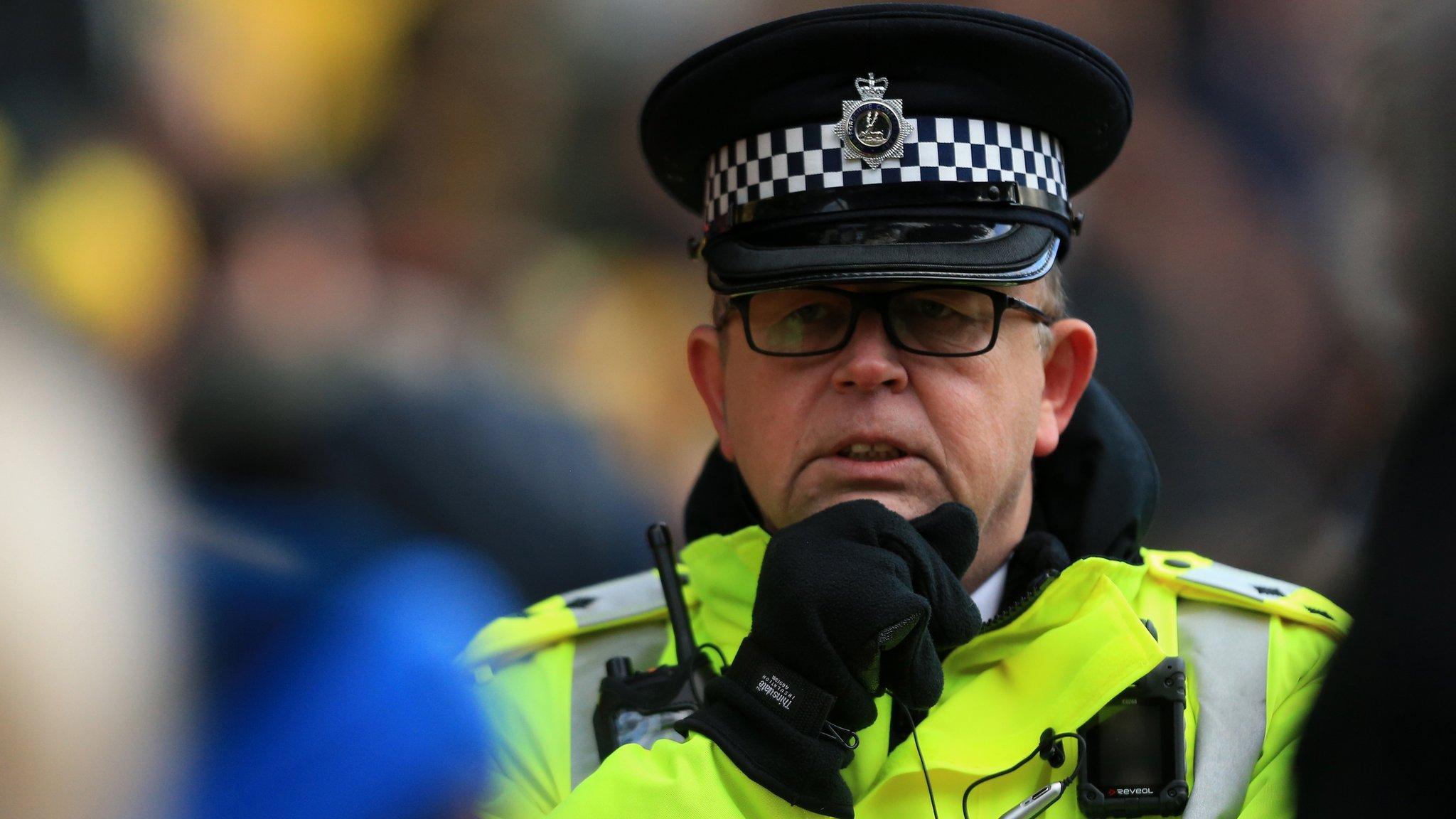Two Welsh police forces top of long-term sick league
- Published
- comments
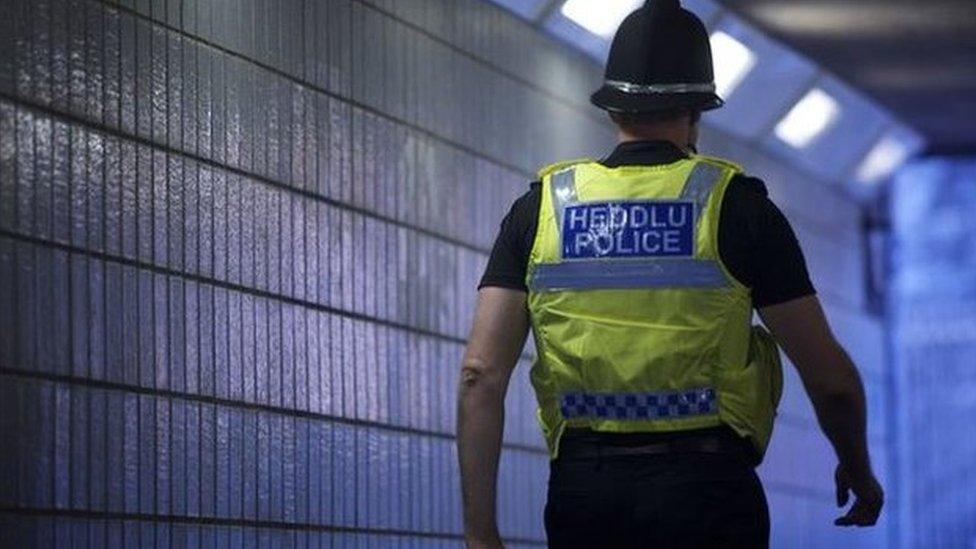
Two Welsh police forces are top of the long-term sick leave table of the 43 forces in England and Wales.
Figures from the UK government showed 4.7% of South Wales Police officers and 3.7% of Gwent Police officers were absent for at least 28 working days between March 2016 and March 2017.
Bedfordshire and Greater Manchester are joint third highest as 3.3% of officers have a recognised medical condition.
Figures showed City of London Police had no officers on long term sick.
"South Wales Police is Wales' largest force and among the busiest in England and Wales, dealing with more than 1,000 incidents every day of the week," said Assistant Chief Constable Richard Lewis, whose force employs 2,893 officers.
"We police some of the biggest events in the country from major sporting fixtures to large-scale international and diplomatic occasions.
"While officers are proud and professional in the way in which they serve the communities of south Wales fewer officer numbers means they are under greater strain than ever before.
"Additionally the reductions have meant we have focused on our front line resilience which means there are fewer non-operational posts for officers to return into if they are not fit for operational duty."
Wales' two other forces had figures of 1.4% for North Wales Police while 1.7% of Dyfed-Powys Police officers were off on long-term sickness.
The Home Office statistics also show the number of police officers in Wales signed off work due to stress has more than doubled over the past four years.
A Freedom of Information request showed 86 officers across the four Welsh police forces were too ill to work in June due to mental health issues.
In June 2013, it was just 37 - marking an increase of more than 130%.
South Wales Police had the highest number - 60 - off work due to stress in June.
North Wales (1,445 officers) and Dyfed-Powys Police (1,156) both had eight officers signed off, while Gwent, with 1,172 officers, had 10.
The Police Federation described the figures as "the tip of the iceberg".
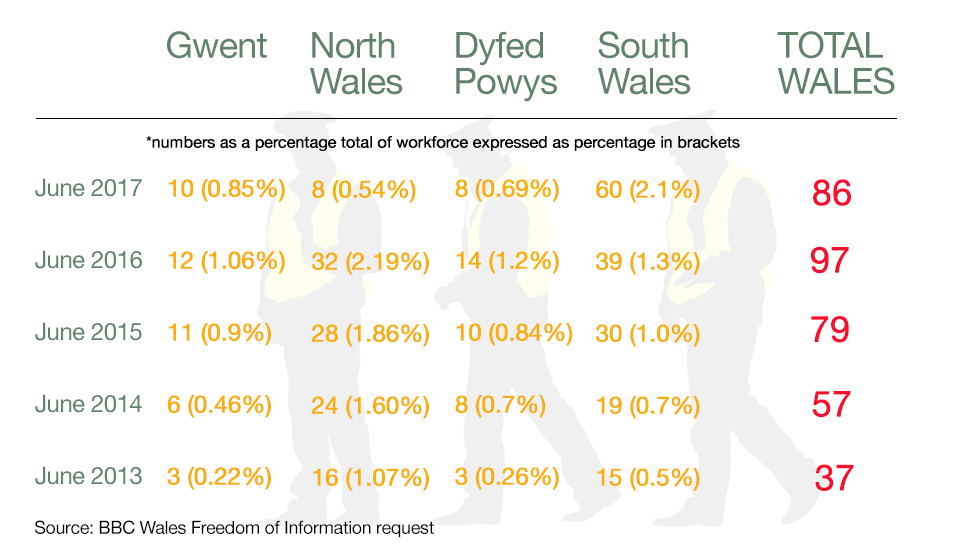
Vice chairman Calum Macleod said: "This is because of the stigma attached, because they don't want to let their colleagues and the public down as well as concerns it might hamper their career prospects."
He said a cut of 20,000 officers in England and Wales since 2009 increased the pressure on those on the front line.
"You are having officers' rest days cancelled without being given appropriate notice - so they are spending less time with families," he added.
In April, mental health charity Mind Cymru launched its Blue Light Programme, offering support and training to emergency workers dealing with stress but Mr Macleod believes this should be done by employers, not charities.
South Wales Police ACC Lewis said the force gave officers "all the support" it could, adding: "We are continuing to work hard to ensure we create a workplace where it's okay to talk about mental health."
Gwent Police said it had a confidential service for all employees, available "seven days a week, 365 days a year", which included counselling.
North Wales Police welcomed its reduction in officers signed off, putting it down to "colleagues working together to support police officers" and counselling services.
Dyfed-Powys Police said policing could be stressful and it had measures in place to ensure officers had access to services including counselling.
The Home Office said it recognised the "uniquely-challenging" work officers did and demands placed on them, saying Home Secretary Amber Rudd had announced £7.5m for a new National Police Welfare Service to complement support provided by individual forces.


A police officer's view
"A constable just doesn't go out and arrest bad guys and bring them in and charge them.
"Now, they conduct the investigation, they then to build a file of evidence for the Crown Prosecution who might want additional evidence and that officer has to go out and do all of these investigations and then perhaps the matter will go to crown [court] and the CPS will want more investigations done, more paperwork done.
"That will come back to that officer who is dealing with other suspects or people in custody and having to go through the same thing, day in day out.
"I've seen colleagues who haven't had support of families and have thought they could deal with it on their own and sometimes there's been tragic consequences.
"Sometimes you take the problems of the job home with you and sometimes you bring problems from home to the job.
"One day I found myself sitting at my desk and my head was head under the desk and I was holding my head in my hands. I just couldn't take it anymore.
"You don't see it coming when depression hits you. And when it comes, it hits you for six.
"To any police officer if you think that you are suffering, if you are depressed, if you come to work and you are going home depressed - you'll know it. And you have got to talk about it.
"If you don't talk about it, it's going to crack you."
- Published27 April 2017
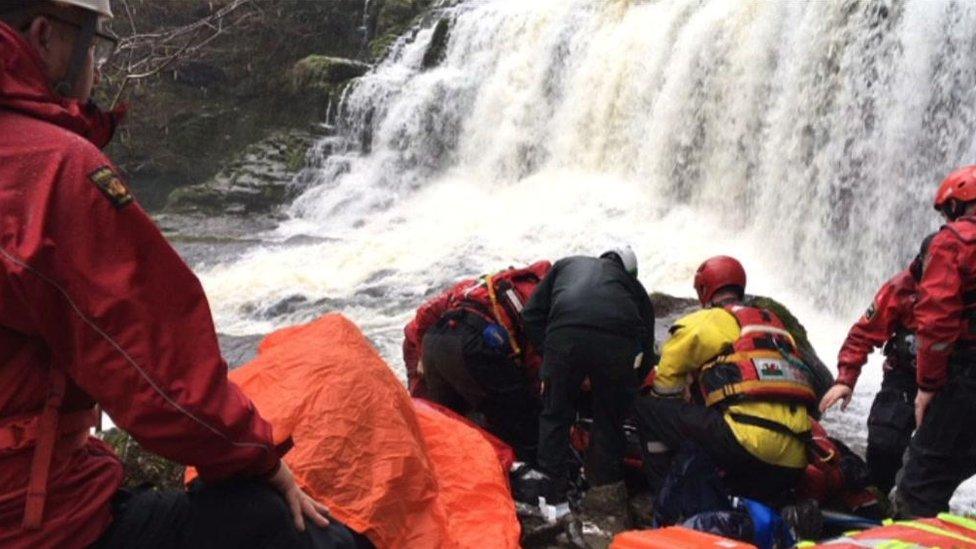
- Published2 October 2016
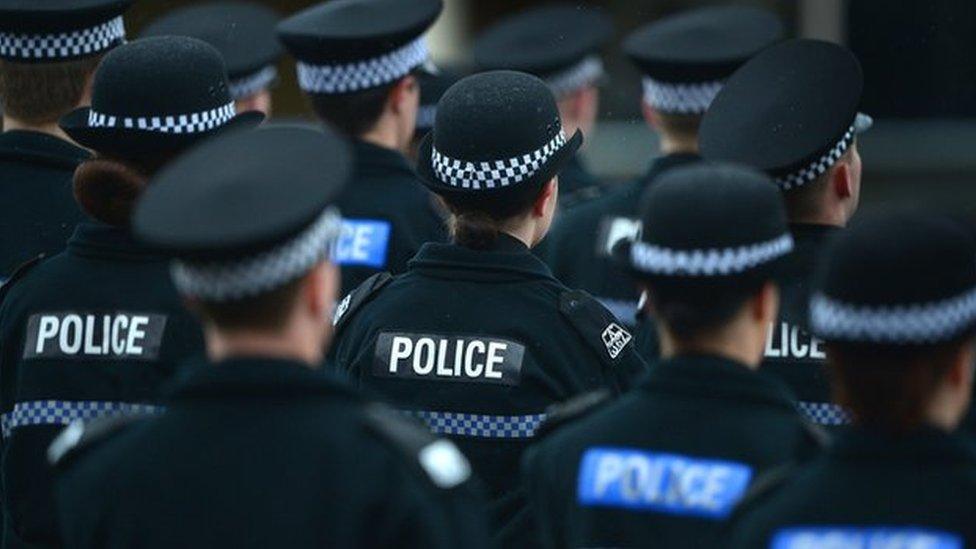
- Published24 November 2015
